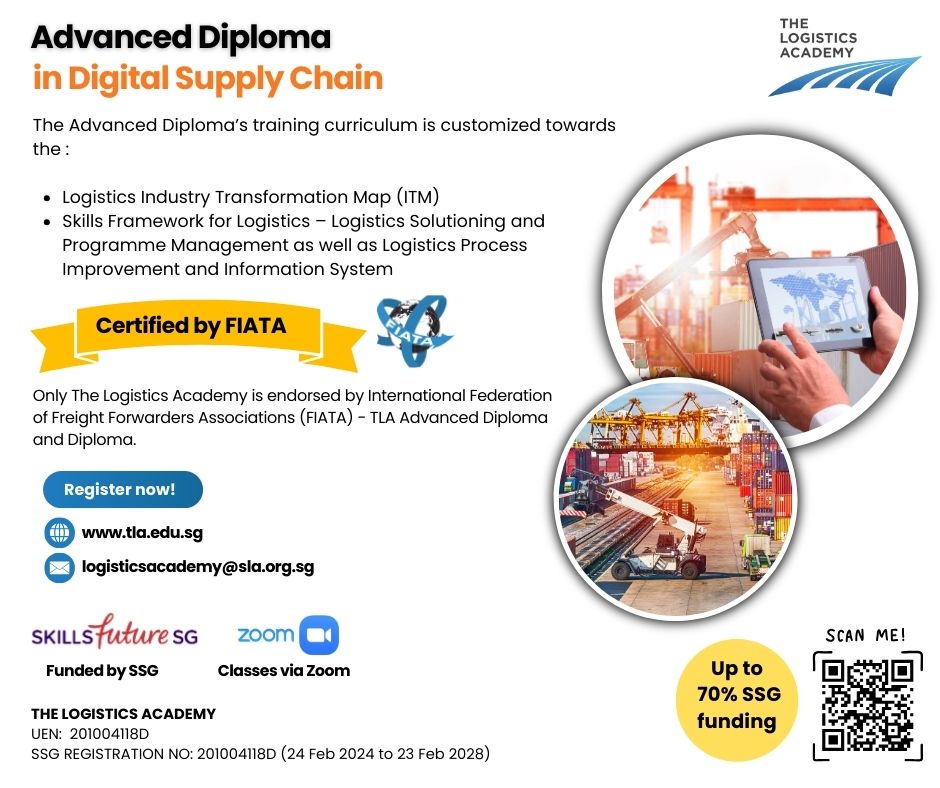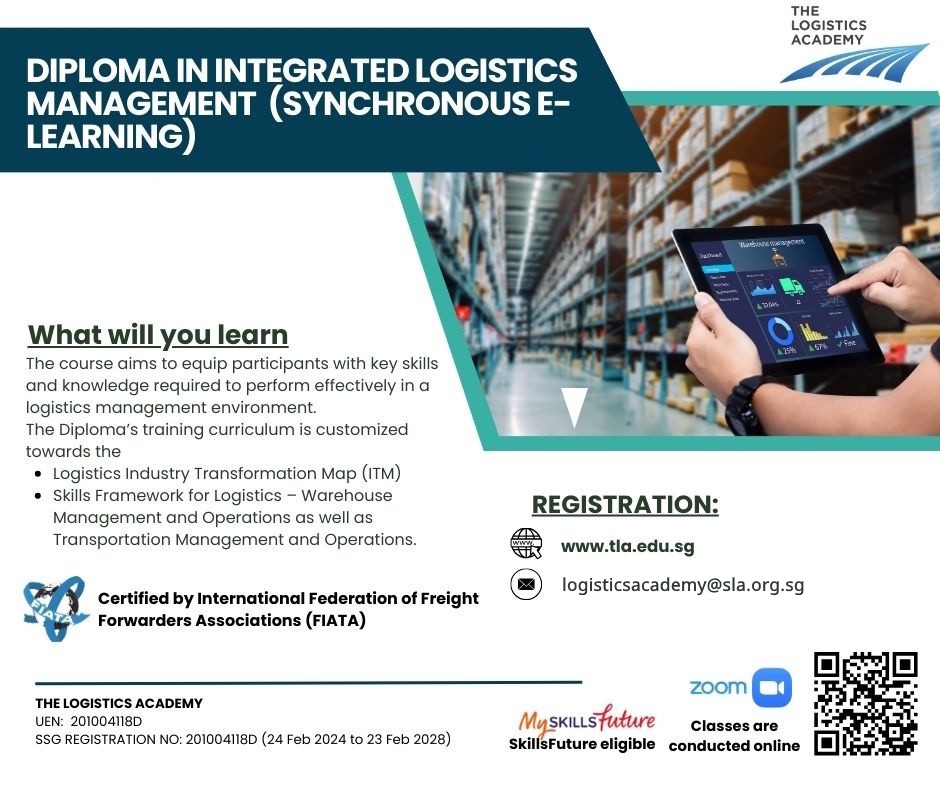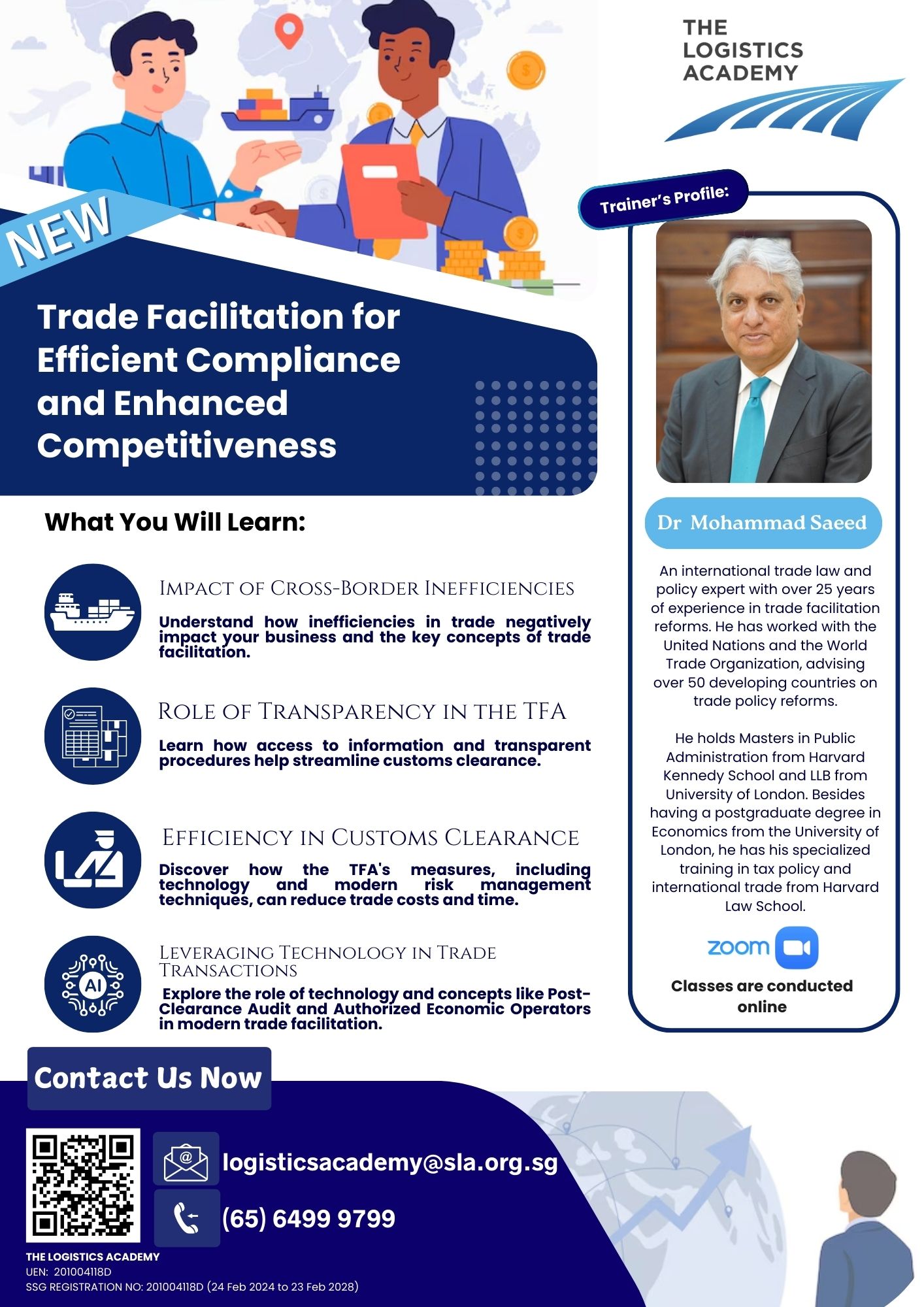International Trade & Effective Handling / Processing of Letter of Credit
- 22 – 23 Oct 2025, Intake: 49
- Next year’s Training Schedule — click here at the end of Dec or next Jan for the dates
Read what our participants have learnt from this course …

Thanks to Mr Lam for sharing his valuable experience and knowledge in this course!
Tifany Thng XuanWen, Logistics Assistant, Self-Sponsored

This course is covered all areas of trade operation.
Derrick Hooi Weng Wah, Sales & Marketing Executive, Self-Sponsored
Objectives
The letter of credit is an indispensable financing instrument used in international trade transactions. Parties to the letter of credit transaction have to abide by the rules governing its use. To many, such rules are confusing. Unfortunately, misinterpretation or misunderstanding of the terms may result in financial losses. Efficient processing of letters of credit documents is important in today’s business environment. Staff must be familiar with the UCP rules governing letters of credit transactions, the risks involved, rights and obligations of the various parties. Knowing how to process the documents correctly for letter of credit negotiation will help the company to save costs and minimise claims. This course aims to provide sufficient working knowledge to participants to enable them to minimise costs and delays in their business transactions.
Designed For
Those who are involved in trade documentation, purchasing and supply, logistic operations, credit management, sales and marketing.
Coverage
- Problems, difficulties and risks in International Trade
- Role of logistics provider in International Trade
- Methods of financing in International Trade
- What is a Letter of Credit?
- What to do when you receive an LC
- What the seller and buyer wants
- Parties involved in an LC
- The mechanism of the banker’s LC
- The advantages and disadvantages of LC for sellers and buyers
- Presenting documents to the bank
- Understanding the related documentation and shipping issues
- List of common discrepancies
- Types of LC and their effects on users
- What is documentary collection?
- Notes on DP and DA
Fees
| SLA Member | Non-Member | Self-Sponsored | |
|---|---|---|---|
| Course Fee | $598 | $748 | $748 |
| GST | $53.82 | $67.32 | $67.32 |
| Application Fee | $32.70 | $32.70 | $32.70 |
| Total Fee (payable to TLA) |
$684.52 | $848.02 | $848.02 |
Payment
Payment will only be required after the course is confirmed.
(The status of the course would usually be advised one (1) month before the course start date.)
Payment mode (retail payments facilities are not available) :
Overseas – Telegraphic transfer
Local – Bank transfer or Corporate PayNow
Duration
2 days (9 am to 6 pm), 16 hours
Lecturer

Peter Chua is the Managing Director of Ignite Training and Consultancy LLP. He has more than 20 years of corporate experience with global responsibility. Peter specialises in Supply Management and Supply Chain Operations. Peter is a cross-industry practitioner, having worked in leading companies across various industries – Oil & Gas/ Natural Resource, Chemical Manufacturing, Pharmaceutical-Nutritional, Medical-Ophthalmic. He has wide exposure in traditional and e-commerce business models and is conversant in commodities trading, manufacturing and retailing business. He has a unique experience in project logistics, having managed all nine classes of dangerous goods (Class-1 explosives to Class-9 miscellaneous dangerous goods).
Certification
A Certificate of Attendance will be awarded upon successful completion with 75% attendance.



